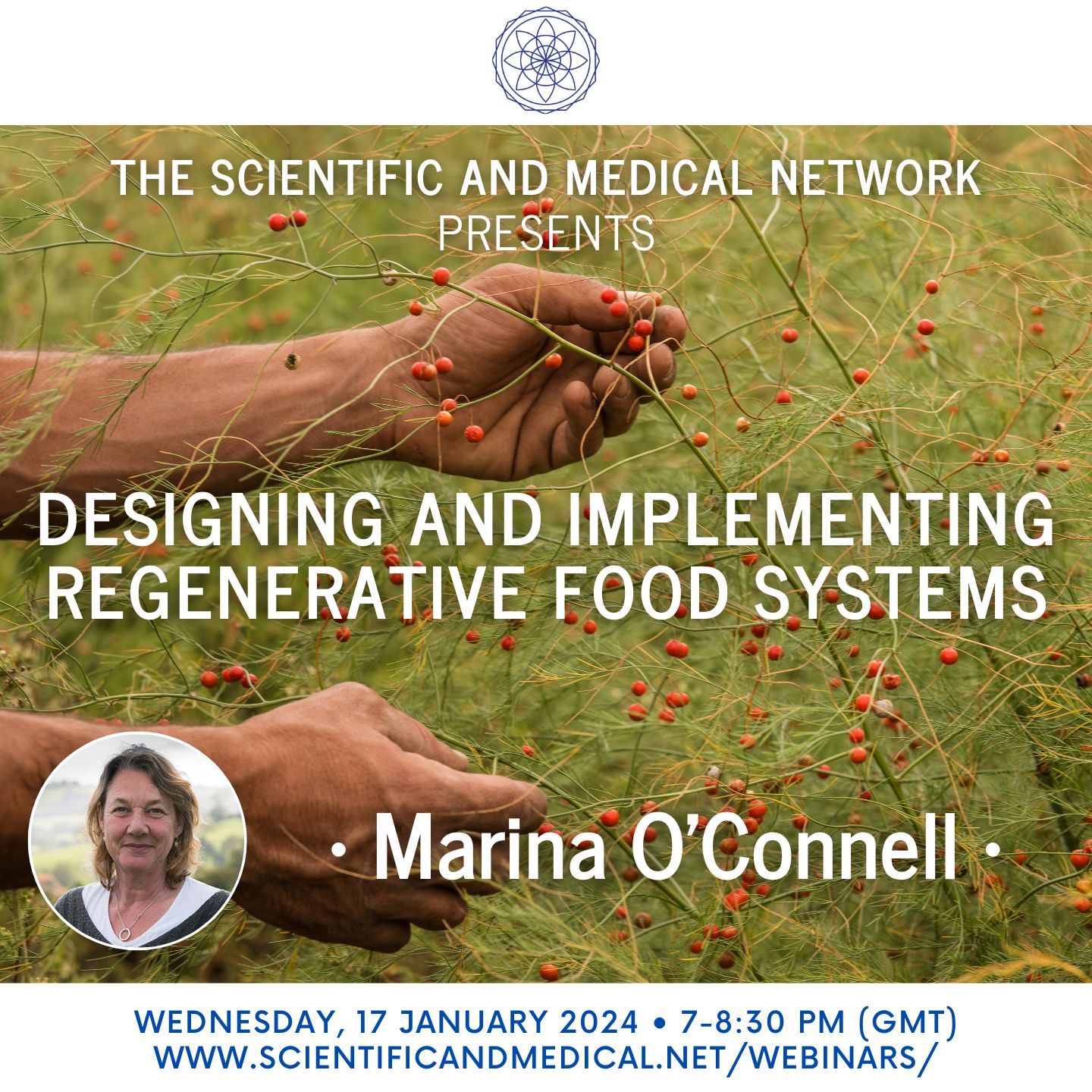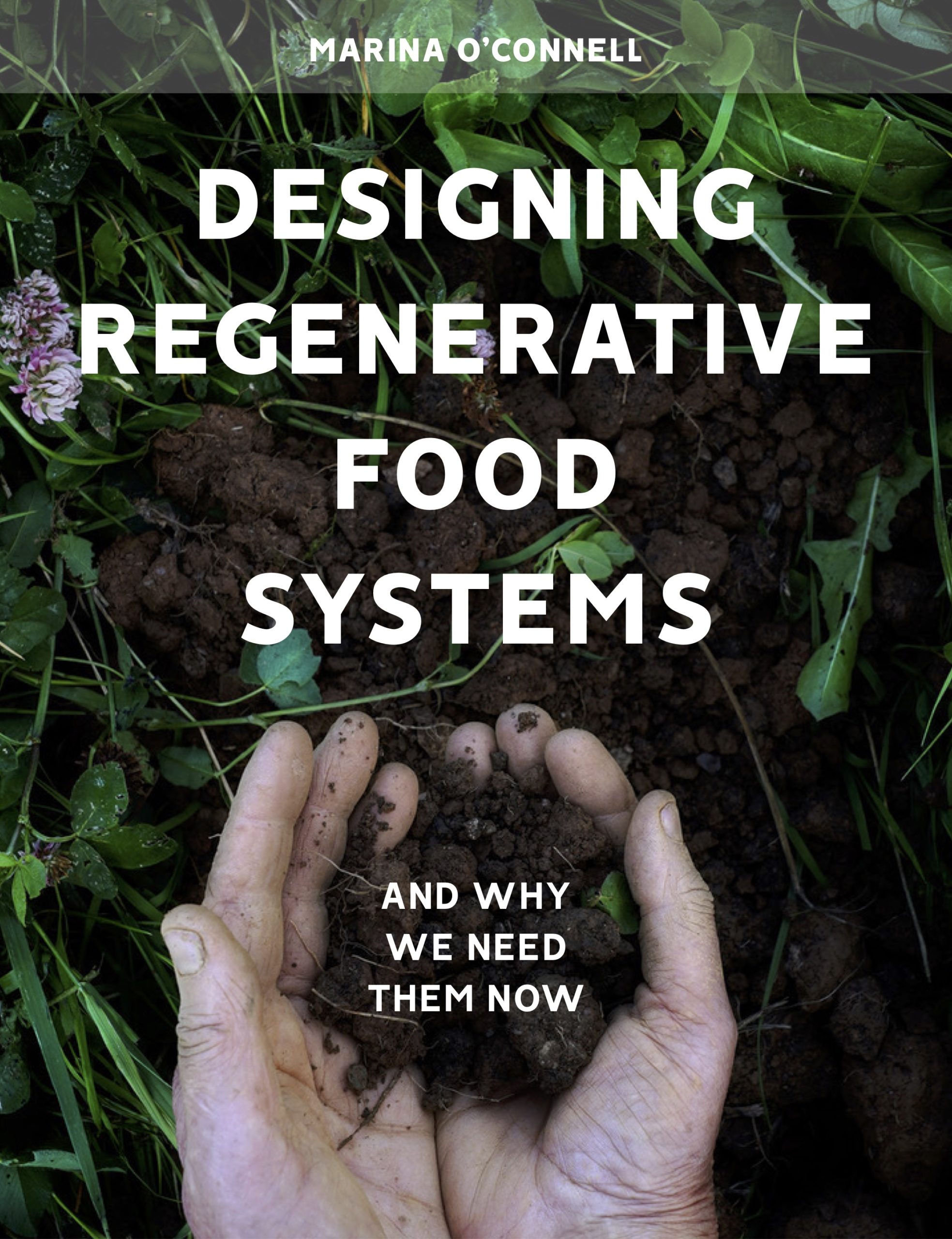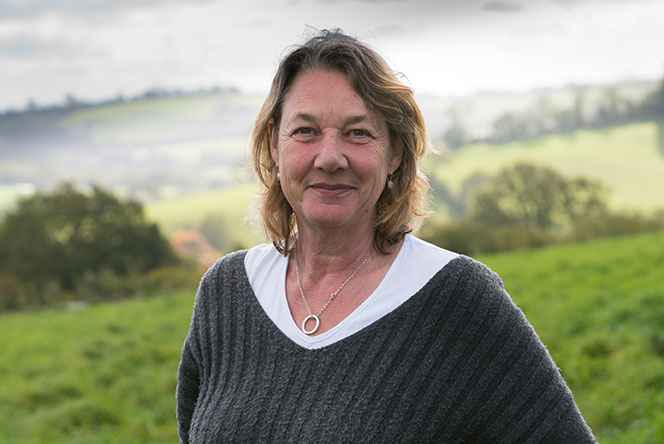
Marina O’Connell – Designing and Implementing Regenerative Food Systems
How can farmers and growers change their approach to farming to switch from an input output model to a holistic circular model?
Marina O’Connell will discuss how industrial farming has contributed significantly to climate change and biodiversity loss and poor human health over the last 100 years. However, at the same time as industrial farming has been rolled out across the world there has been a concurrent reaction and creation of many alternative systems of farming based on biology and ecology, namely Biodynamic and Organic farming, Permaculture design, Agroforestry and Agroecology, culminating in the new term of Regenerative Agriculture.
Marina will describe the common characteristics of these systems. Farmers and growers first need to “change their minds” before they can change their farming practice. Marina will discuss how this can come about, and how a shift in farming practice can address the challenge of climate change and biodiversity loss, whilst producing local healthy food.

•
About the speaker:

Marina O’Connell is a director of the Apricot Centre, and in 2015 she took on the tenancy for Huxhams Cross farm, in Dartington, Totnes, Devon with a small but rapidly growing team as the farm itself grows. This small 13-hectare farm has been regenerated by weaving together Biodynamic farming, agroforestry, and the farm was designed using permaculture design techniques. The farm produces fruit, vegetables, eggs, and small-scale grain, while providing training and a home to a wellbeing service for children and families. It is home to the new school for level-three regenerative land-based systems that started in 2022.
Marina studied Horticulture at Bath University, and a Masters in Environment and Society under Jules Pretty at Essex. She has worked at the Horticultural Training workshop at Dartington Hall and Otley Agricultural College. She ran a small market garden in Essex, selling her produce at Growing Communities in London, and now a larger farm in Devon. The team completed an impact assessment of Huxhams Cross farm after 5 years, finding that the farm is carbon negative, sequesters more carbon that it uses, supports more biodiversity, produces a wide range of local food and is economically viable.
Marina is a permaculture designer, and designs and creates business plans for regenerative farms, small and large scale. Her new book Designing Regenerative Food Systems was published by the Hawthorn Press in 2022.
TICKETS
Please note: This event is included in the Season Ticket.
All bookings will receive a link to view the RECORDING.
Speaker
-
 Marina O'ConnellPermaculture designer, writer
Marina O'ConnellPermaculture designer, writerMarina O’Connell is a director of the Apricot Centre, and in 2015 she took on the tenancy for Huxhams Cross farm, in Dartington, Totnes, Devon with a small but rapidly growing team as the farm itself grows. This small 13-hectare farm has been regenerated by weaving together Biodynamic farming, agroforestry, and the farm was designed using permaculture design techniques. The farm produces fruit, vegetables, eggs, and small-scale grain, while providing training and a home to a wellbeing service for children and families. It is home to the new school for level-three regenerative land-based systems that started in 2022.
Marina studied Horticulture at Bath University, and a Masters in Environment and Society under Jules Pretty at Essex. She has worked at the Horticultural Training workshop at Dartington Hall and Otley Agricultural College. She ran a small market garden in Essex, selling her produce at Growing Communities in London, and now a larger farm in Devon. The team completed an impact assessment of Huxhams Cross farm after 5 years, finding that the farm is carbon negative, sequesters more carbon that it uses, supports more biodiversity, produces a wide range of local food and is economically viable.
Marina is a permaculture designer, and designs and creates business plans for regenerative farms, small and large scale. Her new book Designing Regenerative Food Systems was published by the Hawthorn Press in 2022.
